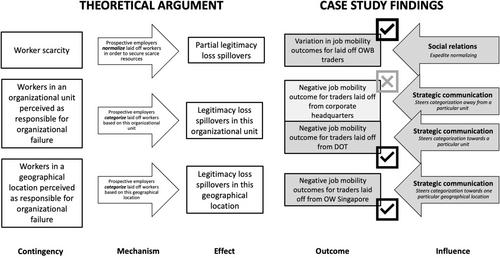Scarce resources or damaged goods? On the legitimacy of laid-off workers following MNC failure
Abstract
Research Summary
We contribute to theorizing global human resource strategy by analyzing the mobility of workers laid off due to the failure of a MNC employer. The job opportunities of laid-off workers are affected by their industry legitimacy. Focusing on scarce specialized workers, we propose that prospective MNC employers share an interest in retaining such workers' legitimacy. However, in the light of organizational failure, they may suffer from cross-border legitimacy loss conditioned by their former employer's MNC structure—specifically, their former organizational units or geographical locations. We present an illustrative case study of traders laid off by a spectacular bankruptcy in the global bunker industry. This inspires a discussion of how MNC top management can manipulate worker legitimacy following an organizational failure.
Managerial Summary
Strategic hiring of globally mobile scarce specialized workers is central to global human resource strategy. We analyze what drives the legitimacy and mobility of such workers after being laid off by a bankruptcy of their former employer. We demonstrate that laid off workers experience comparatively high legitimacy loss when they were previously assigned to an MNC organizational unit or geographical location where other workers were suspected of being responsible for failure. This weakens their bargaining position vis-a-vis a prospective employer. We present an illustrative case study of traders laid off by a spectacular bankruptcy in the global bunker oil industry.



 求助内容:
求助内容: 应助结果提醒方式:
应助结果提醒方式:


